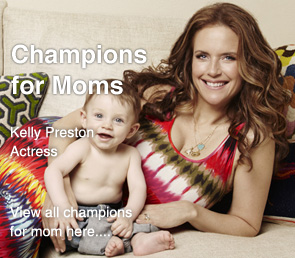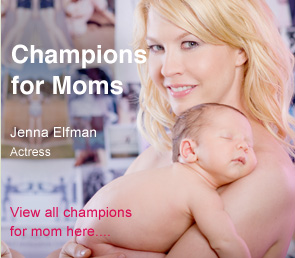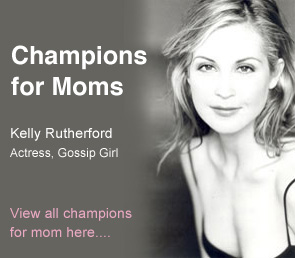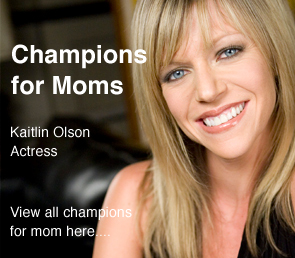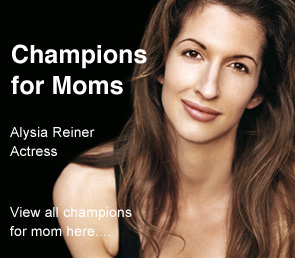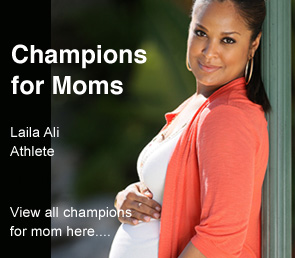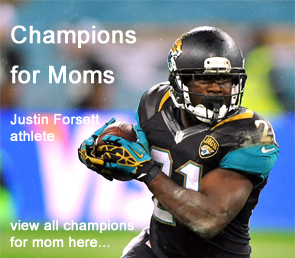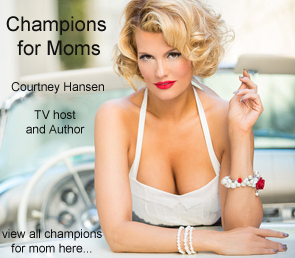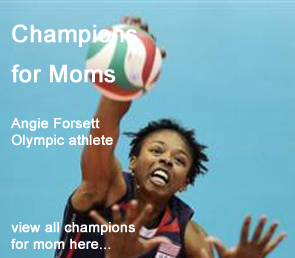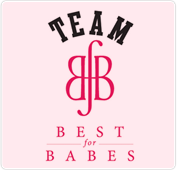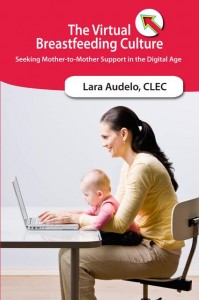 We’re very excited to share this interview with Lara Audelo, Best for Babes team member, owner of Mama Pear Designs, and author of the new book The Virtual Breastfeeding Culture: Seeking Mother-to-Mother Support in the Digital Age (with an introduction by Bettina and Danielle)!
We’re very excited to share this interview with Lara Audelo, Best for Babes team member, owner of Mama Pear Designs, and author of the new book The Virtual Breastfeeding Culture: Seeking Mother-to-Mother Support in the Digital Age (with an introduction by Bettina and Danielle)!
Lara joined the Best for Babes team in 2011, helping to support the development of products benefiting the Mother of All Causes, and expanded her role to facilitate the growth of our corporate partners through the C.A.R.E.-WHO Alliance. We couldn’t be happier about her new book and her willingness to share all that she knows about the culture of online mom-to mom breastfeeding support.
The web provides so much support to breastfeeding moms. But it’s possible to get Booby Trapped, too. What are the Booby Traps to look out for online?
Yes there are certainly Booby Traps online! When a mother-to-be or new mom first starts searching, chances are she is going to go to Google and type in “breastfeeding support,” “breastfeeding facts,” or something similar. The thing that most women just beginning their online quest for breastfeeding information don’t realize is that there is a great deal of information online that can be misleading.
I’d say the most important thing to remember and best way to determine reliability of online resources is to look for evidence-based information, and then to question the source of the material. Obvious conflicts of interest, such as one of the big formula companies offering breastfeeding advice, should raise a red flag. In the beginning it can be a little difficult, but if you spend any length of time looking online for breastfeeding help, it becomes easier to spot sources providing breastfeeding information that might be questionable. And of course, even though the Internet offers more information than we could ever process in our lifetimes, if you are really struggling it is best to seek help when possible from an IBCLC in your area.
What are your best tips for getting the most out of online breastfeeding support?
In addition to avoiding resources that might be questionable, I think the best advice is to join a community - somewhere with people to encourage, support and share their wisdom with you. I have yet to meet a breastfeeding mom who didn’t want to pay it forward and offer support to the new mom on the block. There Facebook pages, Facebook groups, online forums, Twitter hashtags that can be used and followed, blogs, podcasts - really the various types of support that can be accessed online are impressive. It can be as simple as finding a platform you like, gravitating toward the positive supportive people, and then offering support to those around you, as sometimes we learn more when we help others than when we seek help for ourselves.
In your book you include a number of stories of moms’ experiences getting support for breastfeeding online. Can you share a few of your favorites?
I honestly was really moved by all of the stories I chose for the book. Some of them touch on very serious subjects like losing a child and postpartum depression. Others involve working and pumping, and finding donor milk - I think there is a good balance overall. There is one story of a mother, Krysta, whose baby was born weighing just over a pound at 25 weeks. I love her story because she not only managed to pump for him, but eventually got him to feed directly from the breast. Her spirit and determination is incredibly inspiring, and she is someone who immediately turned to the Internet after giving birth unexpectedly. She was in the hospital with a fragile baby in the NICU, and knew exactly where to go for help. And they were there for her immediately, as soon as she needed them. It wasn’t the staff at the hospital; she felt comfortable relying on the moms she had invested time in getting to know up until this point. Imagine if she didn’t have the network of moms to call upon when she needed them. What might the outcome of her experience have been?
One of my other favorites is from the chapter on Breastfeeding After Reduction (BFAR). Kelly had a breast reduction at age 18, and as a teenager she never gave much thought to how it might impact her ability or choice to breastfeed. Her first birth experience was a c-section that she didn’t want, and she had a tough time with supply while nursing her older daughter. Her birth and breastfeeding experience led her to learn about the possibility of a VBAC for her next birth, and that in turn led her to gain more knowledge about breastfeeding, as she realized that breastfeeding really starts with the birth process. When her younger daughter was born, she achieved her goal of having a VBAC and an unmedicated birth with a doula and a very supportive doctor. She struggled with breastfeeding the second time around in the early months, trying to establish her supply and keep up with her daughter’s increasing demand for milk, but she did end up meeting her breastfeeding goal of one year. Kelly’s maternal redemption, to finally have the birth and breastfeeding experience she envisioned and longed for, is extremely powerful in my opinion, especially in terms of showing other women what their capabilities are.
I’ve heard hospital education directors lament the fact that mothers now get their information about pregnancy, birth, and breastfeeding online instead of by coming to classes they offer. They point out that those classes gave new parents social support and often created long-term friendships. What is lost and what is gained in this shift to online support?
I think there is great value in having face-to-face support and education, because the Internet can’t replace all real life experiences. But I also think that hospitals are missing out if they don’t find a way to follow up and connect with the mothers that come to their local classes, and offer additional support online. The reality is that women turn to online support because they are comfortable doing so, and it is highly convenient. There is always someone online able to help you. As we know this is a 24/7 job, so chances are if you post a question online, you will get an answer no matter the time of day. Additionally, hospitals don’t have “warm lines” open around the clock, and sometimes it is easier to type your question silently from your smartphone than to speak on the phone and wake up the sleeping baby at your breast!
I think any woman who has found her tribe online would argue that any friends made via social networking are just as real and valuable than any she might have made in a local birthing or breastfeeding class. I think it’d be hard to measure what is lost in this scenario as mothers turn online, because that would depend on just how valuable the class in your area is that you might be missing. However, I think what is gained is pretty amazing: potentially a wealth of knowledge (if you can avoid the online Booby Traps) and the chance to make friends, both in your local area and abroad.
What has online mom-to-mom breastfeeding support meant to you? Where do you turn for support and what do you avoid?



